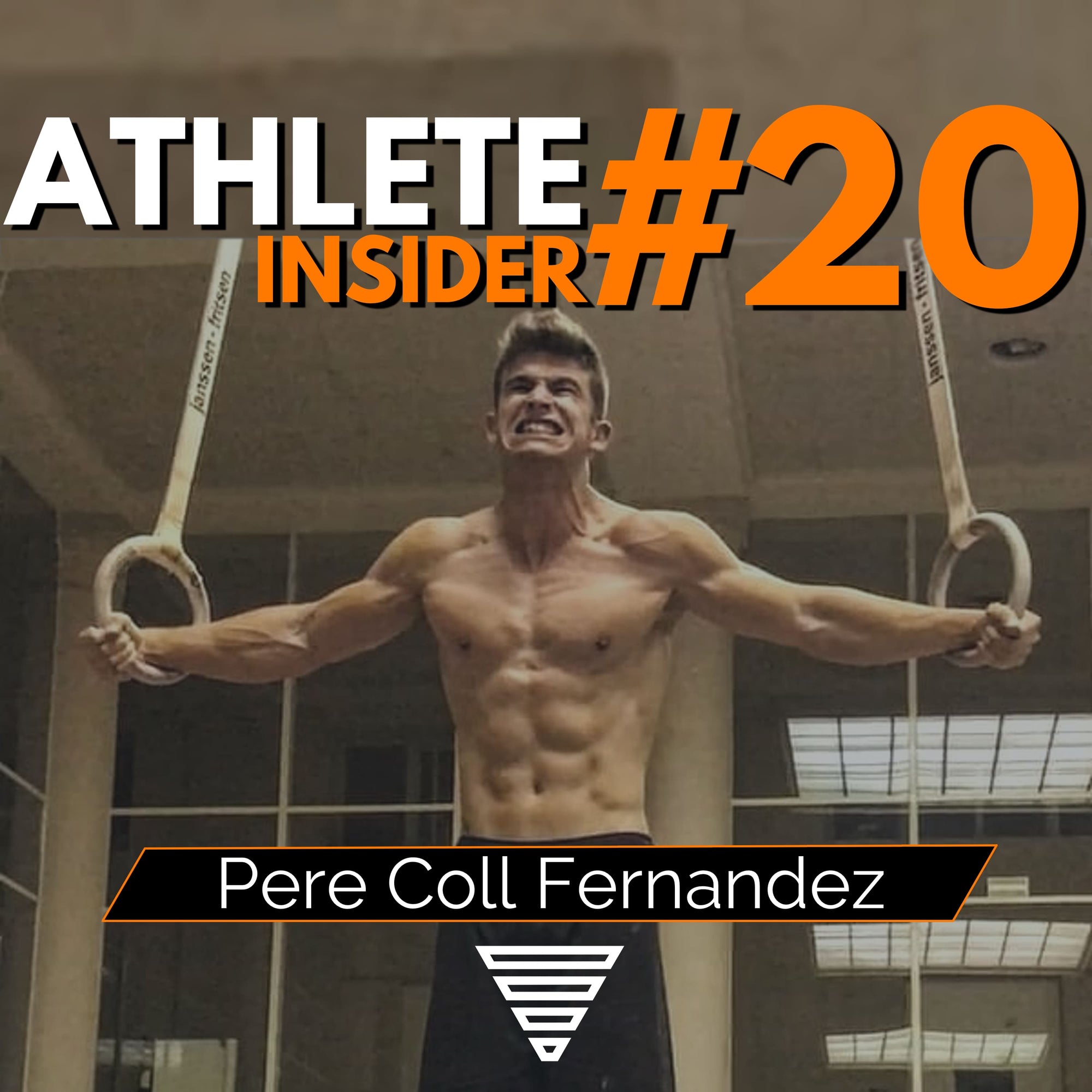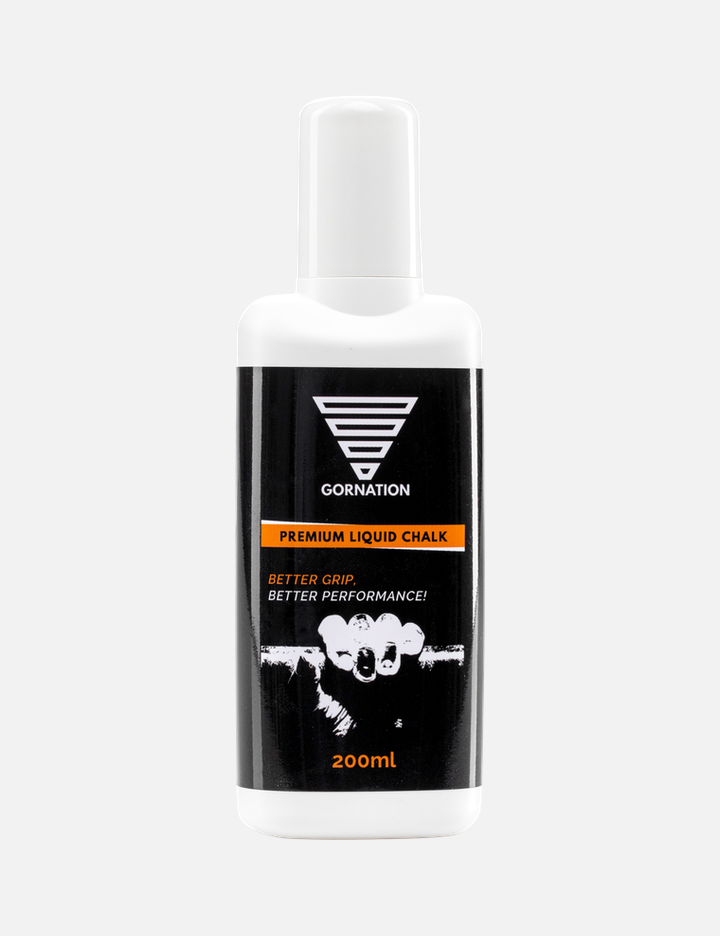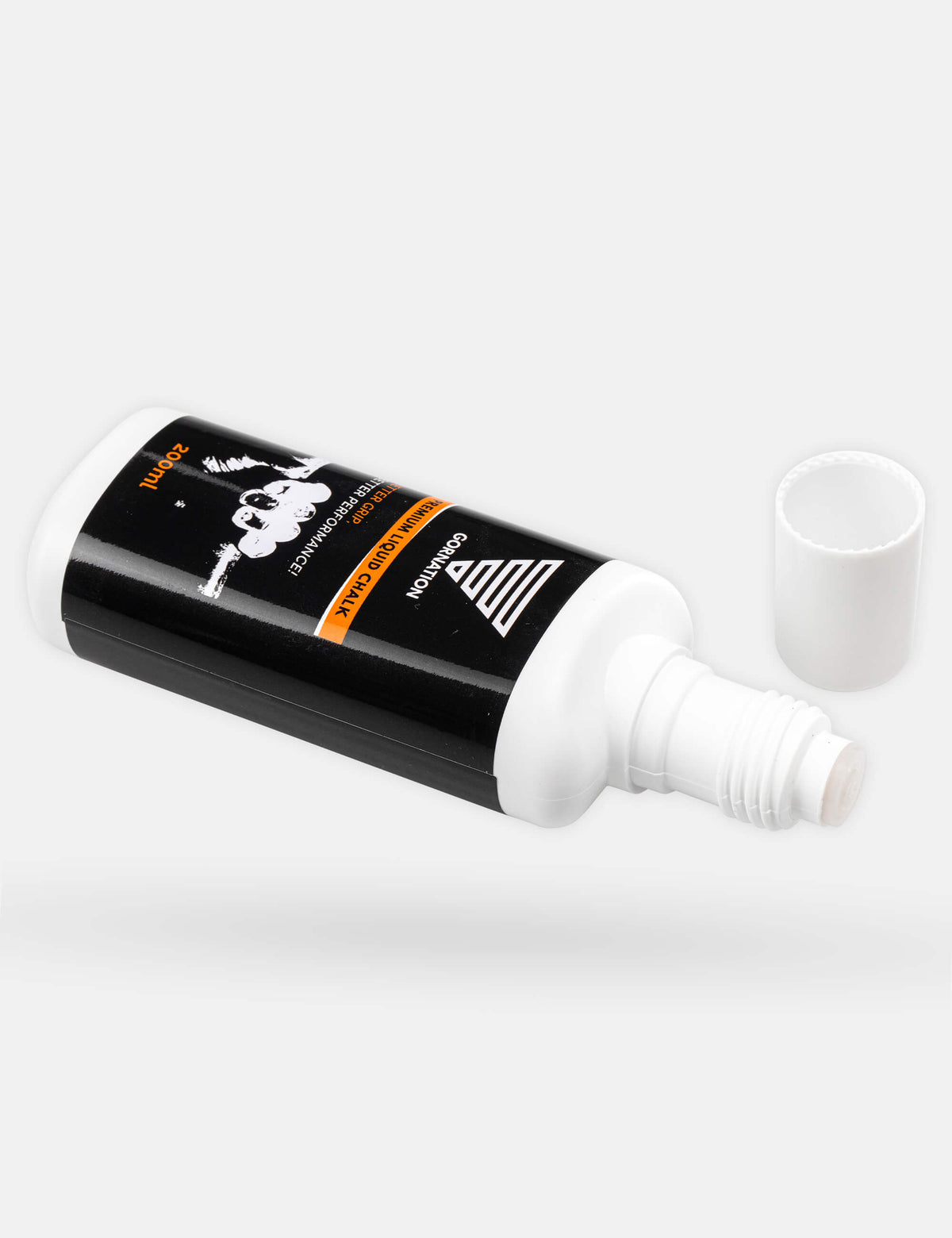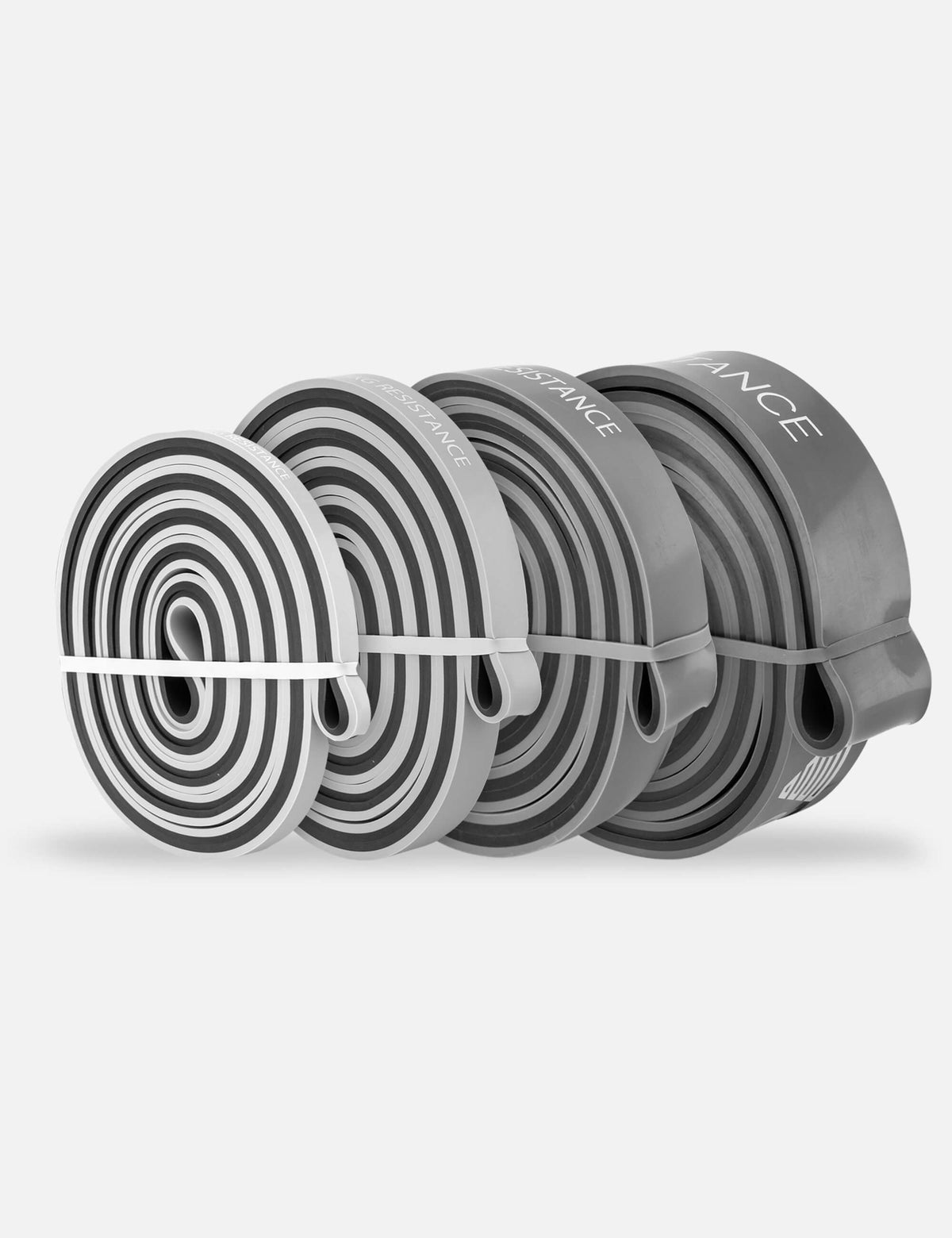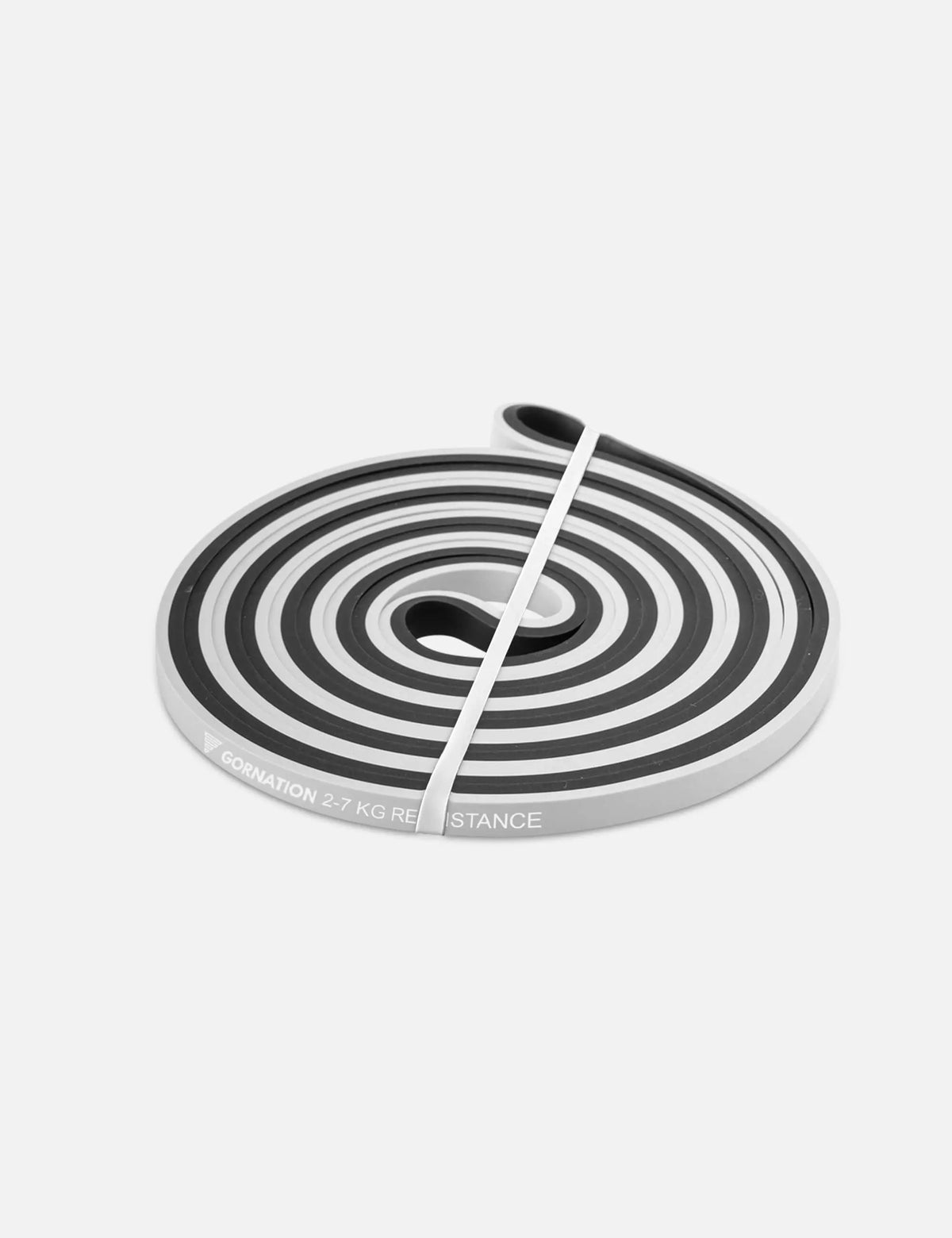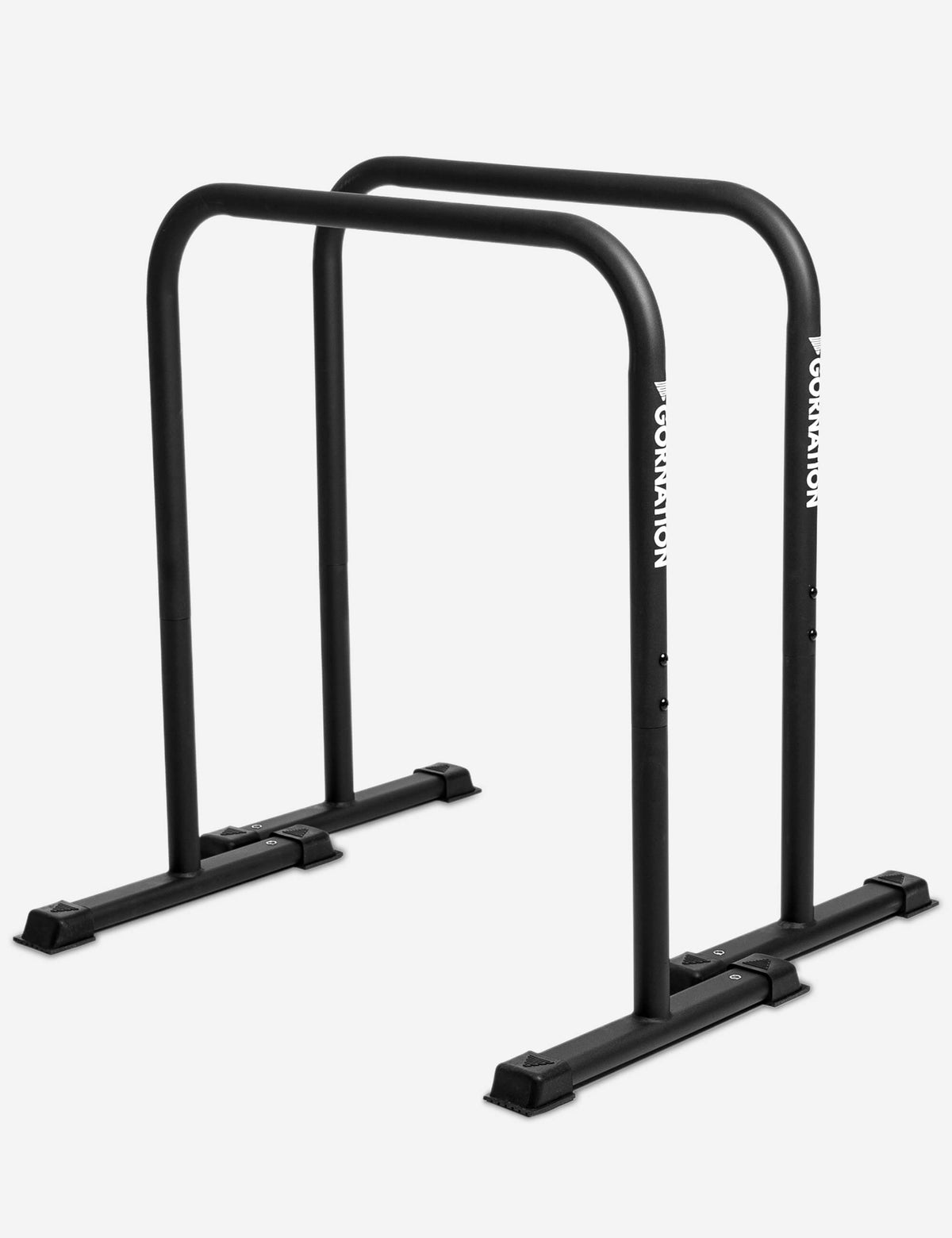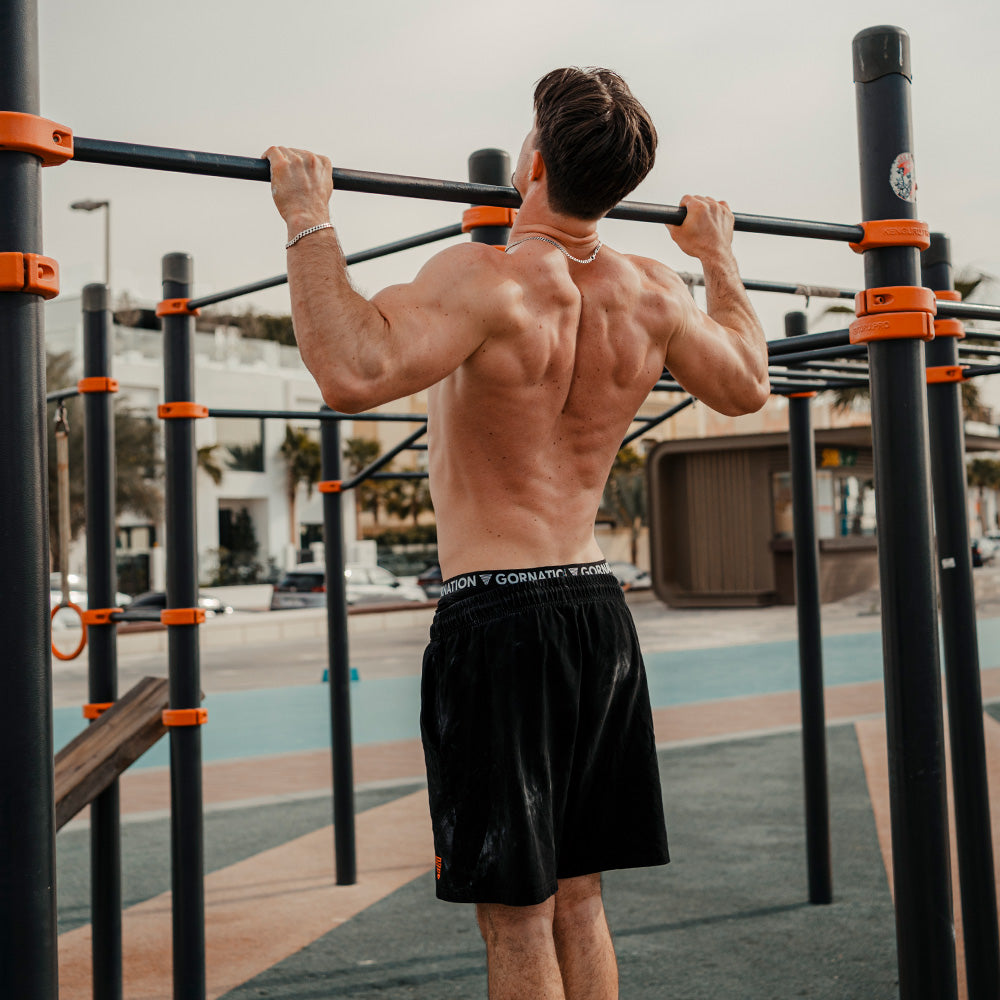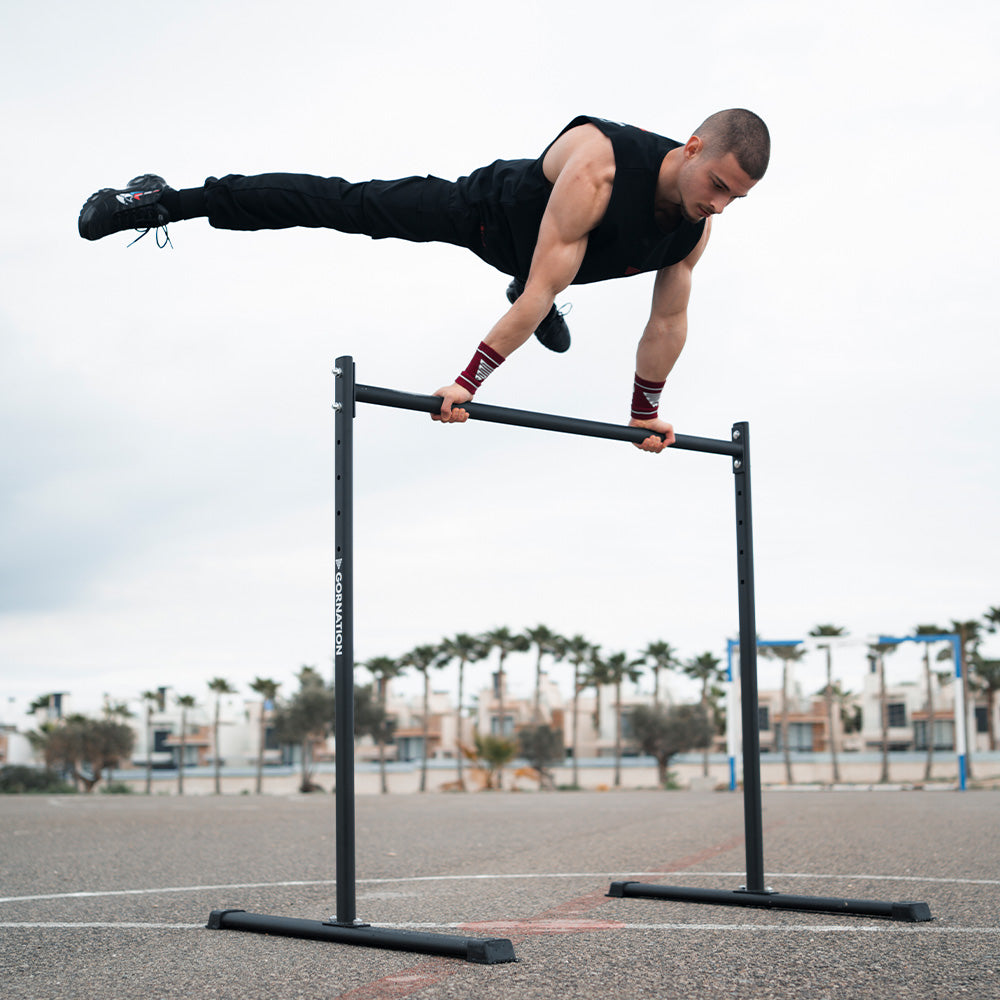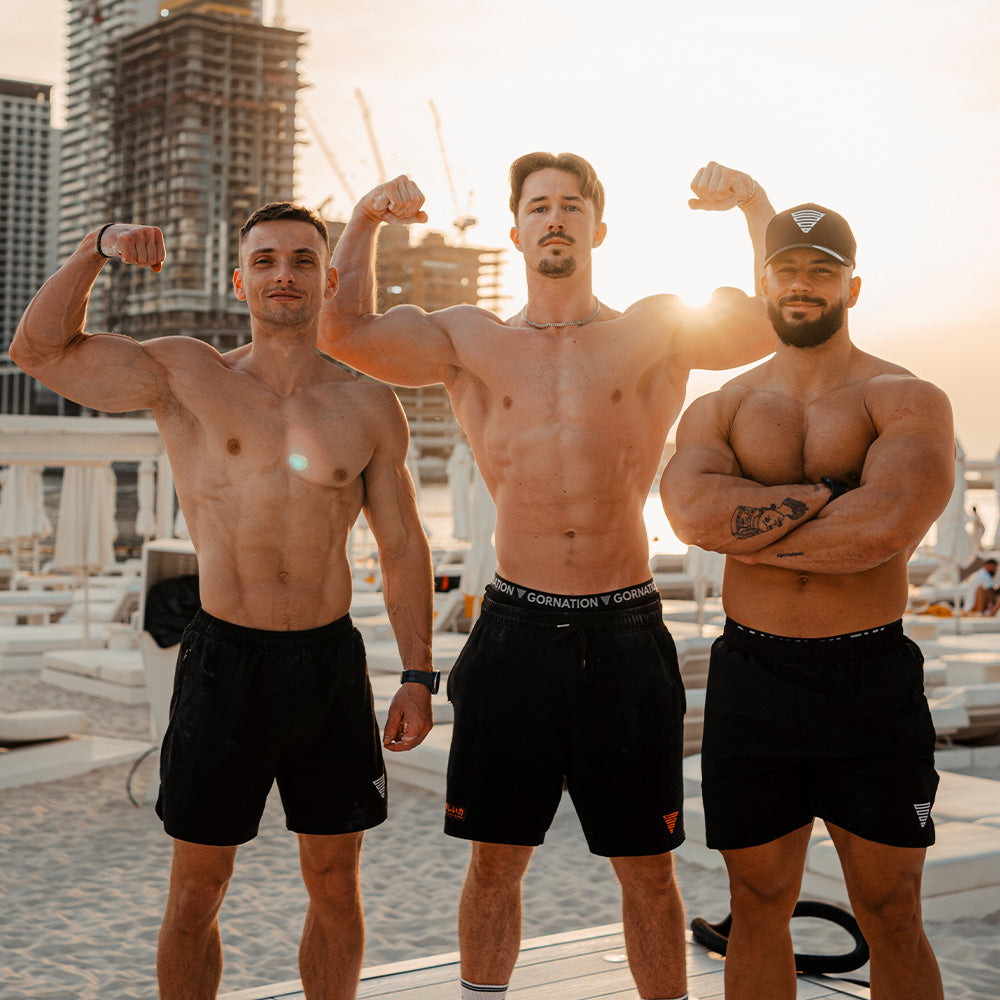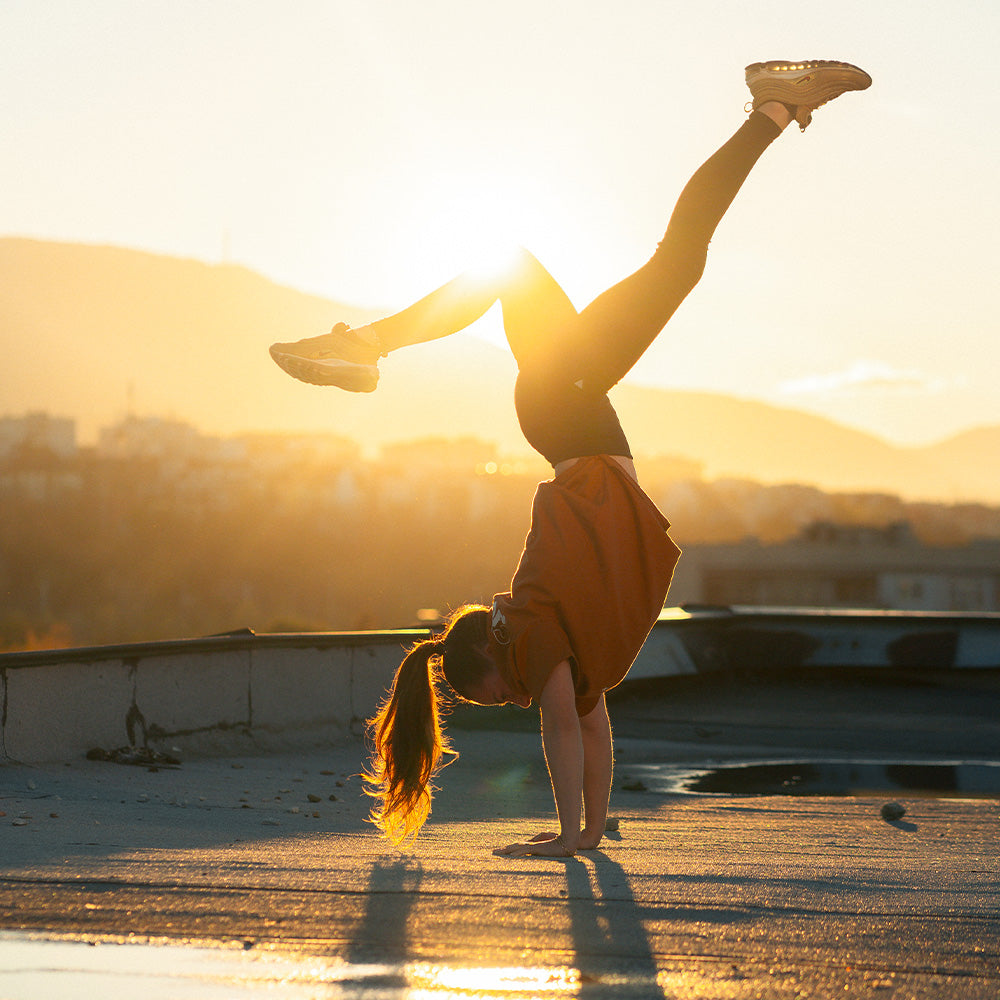DENTON CONTEH | Full Planche + 240kg Deadlift | Interview | The Athlete Insider Podcast #52 Pt. I
View the interview here:
Or listen to the interview here:
The text of the interview (translated automatically):
Denton Conteh is an exceptional athlete who lifts extreme weights in deadlifts and in squats but also performs statics like the iron cross or the full planche with ease in this podcast interview you will learn a lot about denton's planche advice and how you can improve your planche workouts we also talk about how leg workouts help you improve your statics and some nutrition advice to get your aesthetics on the next level you're gonna lose your plant then don't turn your legs and i was like man just let me do my thing man don't judge me if you support me then you know then support me and what i do you can already look forward to the second episode coming in one week in the description you can find again all the chapters of this interview with all the topics that we talked about keep growing guys and enjoy this interview yo gorillas welcome to the athlete insider podcast by GORNATION my name is phil and today's guest is somebody who combines extreme aesthetics like the full planche with extremely heavy deadlifts squats and weighted calisthenics i'm happy to welcome from london denton county hello thank you so much for letting me on this show i'm looking forward to our interview conversation me too everything is good on your side you are good olga thanks all good how are you doing i'm good as well thank you i'm also really looking forward to the interview um i think uh the people who know you are like really uh interested in your story and your uh his background in your sports career let's call it um because you're you're quite a special athlete uh when i have to think of somebody who lifts really heavy heavy weights in deadlift and squats and does like a full planche and uh maltese and like you're really strong and that's that's why i'm really looking forward to this interview and that's why people requested you so yeah maybe you want to kick off presenting yourself who are you what do you do how do you see yourself so my name is denton conte i'm i live in london but i was actually born in ukraine i'm half ukrainian and half sierra leonean but i came to london i was three and a half and i've been living all my life since then so yeah i've been doing calisthenics advanced calisthenics for the past eight years but before that i was doing like various sports i did like athletics it was my main sport i did like triple jump for a couple years i used to represent the uk and triple jump i was like 7th in the uk one point in 2012 but then i kind of stopped doing that because i got injured in the knees because it's quite an impactful sport but that's kind of where my leg strength comes from is from the athletic background i used to do and when i was super young like when i was like six years old and above i did a bit of tumbling like a bit of gymnastic tumbling um that's what i did with all the flips from anyway um but i did that for a few years my main sport was athletic so sprinting triple jumping and um yeah so after that after my um career ended in triple jump i started doing i just went to the gym started doing weights just general weights like everyone trying to get big i was like what 16 when i started lifting weights like just trying to get big and then when i turned 17 i came across a video on youtube uh hannibal for king he's a guy who got me started so i came across his video do you think my friend showed me his video first and i was like oh my days this guy is crazy he's he's hench he's strong and i was i want to learn that stuff so me and him if he was in school i was in college actually he was in college just sitting there bored on my laptops and he and he came across the video and i was like he's like look at this and i was like oh let's give this a go so every single day after college we started going like to the park started doing pull-ups push-ups else it's just basically copying what he done in a video just copying everything he did um but i kind of picked up things pretty fast because i've been i've been doing so advanced kind of i started when i was 17 so that's eight years now but before that i've always kind of evolved like push-ups and pull-ups in like my routine from a young age i've always been doing like basic i would say basic calisthenics but i didn't know i was doing it i was just it was just part of my training i used to always like work out at home one bedroom i was doing like pull-ups push-ups in my bedroom like doing core workouts every single day like every night so i kind of had a strong base from that anyway so when i kind of started um literally i just copied everything hannibal kingdom so i did like muscle ups i was doing like i tried to do like his planche uh you know he does like a leaning forward bit of banana but i kind of had that straight away but then i realized that it was actually bad form so i looked into like just watched gymnastics videos and kind of saw how they trained and i saw okay they focus on like form that attraction arm straight so i was like let me try to focus on doing that and yeah that's how it all kicked off really just watching hannibal for king to get me inspired doing street workout and then gymnastics as well just watch them and just try to perfect the movements but yeah that's how i got started wow so half ukrainian this is something that i have to uh like have to uh talk about uh because i'm always impressed like people where i think like for example the the episode with uh cyborg yeah i thought he's polish and then in the interview he said no he's ukrainian so he's ukrainian there are so many strong athletes in ukraine uh do you do you know why i think it's just like if you look if you even if when i first um came across like street worker in ukraine like all of them were just strong everyone can just plunge from ukraine like i think it's part of our dna part of our blood if you're ukrainian or russian you can plant you get a free plant you know out of all the skills that i learned yeah plunge was my first skill like i learned planche before everything so yeah i just planted my first one then finally even back people but yeah planche for some reason i learnt it pretty easily pretty quickly as well um but then again it's because for most of my life i've been doing push-ups so i had a general great pushing strength like people beginners who ask me how to get into like calisthenics like how to get into learning like planching i always say like you need to be able to do like 50 push-ups like easily 50 like 50 dips 30-50 dips at least but i always say like have really good push pushing strength just have a strong base then start doing like handstand push-ups against the wall just to kind of get the shoulders shoulders going and once you can do like a good ten assisted handstand push-ups and i always say that then you start doing planche leans and tuck planches and take it from there but i always say like you need to have a really strong push in base so i spent literally yeah since i was six years old i've been doing push-ups a lot so i think that gave me like a really good head start in terms of um advanced calisthenics so yeah it's always down to like the basics first spend years doing the basic movements then try the advance i always see guys try to learn planche but they can't even do like 30 push-ups i'm like it doesn't make any sense you know so you need to have like the general foundations first then you then go off to do like it's like any sport anyway it's like any any kind of sport basics first then you start to you know progress it from there sure when you talk about advanced calisthenics um that's something that i don't hear too regular what does it mean for you so i mean like so advanced in terms of starting skills so literally eight so eight years of skill i've been doing eight uh eight years doing skills but pretty much most of my life just doing basics okay yeah that's so basics basics uh it's like push-ups from years and six hours push-ups different versions of push-ups dips uh chin-ups pull-ups l-sits core exercises so just a basic like beginner kind of moves but i spent like time just perfecting volume like doing lots of lots of reps for yeah like um push-ups trying to get up to like sets of 50 for example it says to 50 dips just to 20 pull-ups once i have that then literally learning the advanced skills so trying to get a front lever wasn't really too hard or a planche and so on if it wasn't for those if it wasn't for my youth and my athletics background it would have taken me a long time to achieve advanced skills so i definitely i'm thankful for like just yeah from from when i was young like i was always like very energetic so my parents just got me just got me doing sports from a young age and i think that's what kind of gave me a good head start in in in learning skills sure because it's quite unusual you're also quite high right like quite tall right uh how yeah i think i'm like i'm like between 178 to 180 centimeters like about five foot eleven and i weigh like 75 kilo 75 to 77 kilos when i like i prefer to be 74 but it just my weight goes up and down it's just yeah like between 75 to 77 that's the way i'm that's my weight okay and i don't know did you did you say in the beginning how how old you are so i'm 25 years old now 25 25 years old family man i've got a kid that's nearly two years old wow you know so yeah i feel old i feel older tonight it's funny you're like the same height as me the same weight as me and the same age as me so uh yeah i'm just wondering okay i'm just missing the ukraine uh ukraine genetics this is why i'm not able to have full plans i guess oh probably that's that's the secret man nice so you already told us a little bit about your beginnings in calisthenics and how you got into uh into your first workouts after seeing honeyball after engaging with a gymnastics forum can you maybe fast forward uh tell us a little bit the story from from really from your worst first workout ever to today um to your workouts today yeah so literally just began just doing only calisthenics literally only body weight so so my body weight my advanced calisthenics journey like when i started doing calisthenics properly like with without nothing else started in 2014 that's when i started trying to learn planche all my skills and um i was doing street workout for two years so literally doing freestyle when just i was always a static guy i never really enjoyed freestyle i love statics i did a bit of freestyle when i competed because you kind of had to of why you don't get no points you didn't win so from 24 so 2014 to 2016 i was doing freestyle calisthenics and statics however from 2016 i shifted over to weighted calisthenics so 2016 to 2018 i started doing reps and sets so i started doing weighted calisthenics some weighted dips weighted pull ups uh wait just everything waited basically um so i started doing that from yeah from 2016 till to about 2018 2019 so i started um competing in that as well because i kind of found that a bit more a bit more fake as you kind of go up against guys who are your weight and it's just strict like pull-ups uh weighted pull-ups or strict form weighted dips with strict form and muscle-ups and so on so did that for a few years i became uk champion a couple times as well doing that um for my i was middleweight champion because i actually gained weight so when i was doing street workout i was about 70 like what i am now 74 kilos 75 around that around that weight but then when i do when i did the weight calisthenics i put on a lot of weight i went to like 80 kilos 81 kilos wow but i didn't do as much skill training anymore i didn't i did a bit of statics but i didn't really maintain it as much i kind of focused more on the yes i did that for a couple years because in the uk like it was quite a big thing the reps and sets i'm not sure if um anyone knows about the the hard hitters before ranjit batu solo nero theo they've not got um way calisthenics started in the uk and it kind of just blew up so i kind of got inspired by them and just tried to yeah try to do what they were doing uh i even ended up training with them as well which was an honor for me so you did that for a couple years um and then i also started doing powerlifting too as well as that in yeah about 2018 i started doing power lifting um the heavy squats dead lifts and so on um yeah about it i just wanted to kind of yeah just i basically want to try something new because i also began to work in the gym as well so i'm right now i'm a personal trainer and i work in the gym and working i used to work in a really big gym and i think being a trainer like not everybody wants to do calisthenics so i have a lot of people that want to do calisthenics but people also said oh like i want to learn how to lift weights to lose just generally losing weight lifting weight so well let me try to do different training aspects so that way i can then teach it to people because if i get someone that comes to me and says i want to learn how to score and they live i'm going to be like i don't even know i can't do it myself so i finally teach you so for let me try to broaden my own knowledge and try to learn new things and have strong legs and i and kind of i took it from there so when i started training my legs i thought okay well i was kind of strong already so i just it became a passion i started going into more powerlifting as well started doing the bench press squat and deadlift and yeah i just fell in love with it but then i also have now gone back to just skill training so now right now to be fair i do everything now so i'm doing static so mainly statics now and power lifting and i do a bit of weight kind of things on the side as well but right now i'm training like all three in one go so statics every day most days i train statics anyway i power lift about three three or four days or three days a week monday wednesdays and friday yeah so i started pretty much every day including empower lifts like three times a week as well as well as like weight calisthenics too so yes it's just it's all become like a heavy schedule so it's all just right now i'm just like i just want to agree be a complete athlete i want to kind of inspire people to actually i mean i'm not saying you have to like powerlift but i think it's kind of cool to see someone that can squat and deadlift and bench press and i can also do statics because if you see the norm like there's like a wall between so people that power lift they look at us the street worker they say yeah they can't squat they can't they can't bench press they can't deadlift and then you've got street workout that say oh if you if you train your legs then you can't do statics and so i'm thinking hmm okay let me debunk those let me debunk that so don't be that guy that can do everything so that's my goal right now is to just be complete and and just enjoy training as a whole you know i mean being a specialist is cool like it's fine to just do statics or freestyle reps but personally i just want all the games i want to be strong in everything and it keeps me like this keeps on going you know it keeps me sensible as well so like i don't over train certain things it's like i train statics one or two days and i go and train like lower body for for example so i kind of just mix my training up but i make sure that it helps everything in one go as well so that's just me yeah just it went from just doing bodyweight so then bit of reps and sets and now it's gone to everything all in one now oh so yeah and until the the point where powerlifting came into your training schedule you didn't train legs specifically no i didn't to be fair like i so after athletics right so my athletics career ended in 2014 2013 2014 i didn't train legs at all like i just did only calisthenics literally in that in that three years i just did only um just statics mainly static statics freestyle statics a bit of reps but then yeah in 20 like 2018 like three years into my um um career of calisthenics before let me try to train links again let's see if i can still squat bench press dead lift and yeah i was kind of able to do it already like having that background of course having explosive legs already like i've already already kind of had like 100 kilos squats and like a deadlift like 170 kilo deadlift so i thought let me take it from there and let me just try to boost these numbers up and i've actually still i do want to actually like one day do like a powerlifting comp just for fun like a little regional one just just just something to put in my resume just like that you've done that you know it's a good little good achievement to have so i might i'm still i've been i've been wanting to do i've been wanting to do that for a couple years but it's been up and down but now everything is back to normal in uk anyway lockdown has eased now kind of so i'm looking to just yeah focus on powerlifting and calisthenics and eventually just yeah compete in powerlifting one day maybe like in a year to you know see what happens wow and one question that's uh yeah i'm asking myself are you still able to do a 360 today 360. yeah i actually can't 360 or something yeah yeah about i don't i mean i know i can but i don't really do much the freestyle i literally just only do statics like i just don't really care about freestyle anymore i mean i can about i think about a year ago i because i used to i used like a muscle muscle up to a straight bar planche and then like a push-up 360 to a front lever so i tried that last year and i still had it wow so i guess you see i i found with like um anything to do with tricking like skills tumbling because remember i said i did tumbling from a young age but then i didn't do that for like 10 years and then when i did it i started tumbling like last year started doing it again and literally had all my same tumbles that i did because it's like muscle memory it's like it's a thing where once you kind of once you've done it before especially if you've done it for years it doesn't really go away the only thing that goes away is your awareness all you need is one or two sessions back and the awareness is there it's same with like 360 freestyle like the first 360 you might not catch but the second one okay i know i know exactly where to go i know when to let go and know when to kind of see the bar so yeah i find with freestyle it's like it's not it's more of a fear thing it's not really like even with tumbling even with chicken it's not it's not really too hard it's just you have to have the balls to do it so like back when i did step like calisthenics like just freestyle i was scared to do like all that stuff on the bar like i don't mind doing stuff on the floor like tumbles and flips on the floor because i know exactly where i am on the bar i was scared i was so i thought now i just stick to statics but then i did a bit of freestyle anyway just to kind of fit in but i personally didn't like it i just wanted to keep it only strength just only strength that's how i see it anyway cool yeah in your beginnings uh really at the in your first street workouts calisthenics uh workouts um what was your goal was it the physique was it the strength was it my goal was what was the plunge my goal was to plunge my goal was to do planche push-ups that was my number one goal and when i saw hannibal king do his planche push-ups i was like i want that i just wanted to be that guy that can do no-legged push-ups and show off yeah so that was my number one goal was just was had to plant had to plant had to plant push up but it's funny because it took me like i learned so shuttle planche i learnt it extremely fast but it was actually it wasn't clean though it was quite it was a bad form because i didn't know any better i just i used to watch like you know the general usa street workout guys that would that would just use sheer strength with no technique so not like a plant so from a tucked blanch i learned a shutter planche in literally about a month month and a half or two months but that was wasn't perfect it was like a piped slightly bent arm but but i straight away had planche push-ups because i literally learned the long the wrong way all i did was okay i had a tucked planche my my way of learning planche even till this day i always recommend handstand negative down to planche for me that was how i learned how i learned it um i find for me that's one of the best ways because that way because the first negative you're always going to do it's going to be like pure it's going to be super quick but over time eventually you're going to learn how to slow it down slow it down and eventually catch it into a plunge that's how i like my shadow planche and full planche i learned it by doing negatives obviously it also did like from tuck to straddle as well but i find that when i'm in a handstand it's very easy to kind of shutter your legs so when you get into position then you just lower down and just and just brace just literally just squeeze everything squeeze your whole body and try to hold it so i just kept doing that like i kept doing that and then eventually it just held and i was like oh my god okay let me film it and i filmed it it was a bit higher but then i thought okay let me fix it up a little bit so i filmed because at first i didn't film nothing i just kept trying trying and you see when you think oh yeah i'm doing a plunge but it's actually like a half handstand yeah so i filmed everything i did and just fixed it from there anyway i've actually got my first ever videos on facebook some of my of my first plant plant push-ups it wasn't it doesn't look too bad it's a bit packed it's a bit bent but it's it wasn't too bad it so to fix that it took me about another two months just to get it straight and clean um yeah once i've kind of watched gymnastic videos but yeah people that always ask me how to do plant how to punch i always say have a good handstand and just lower down from there just keep trying to lower down that's my uh that's my first way of learning it and of course you've got the accessory like you know planche leans you got the frog shuttle like you know like an advanced straddle like advanced frog sorry advanced rug shuttle planche just get used to doing that but and also i think you need some sort of um flexibility in your hips you need some good hip mobility for shadow anyway uh because the easier you can open your legs then the the more comfortable it will feel and you won't be like you're gonna see a little guys they straddle when it's like their legs are bent and because it's just a hips attack so i always kind of recommend like middle splits if you kind of i'm not saying being super i'm not flexible but have a good level of flexibility so when you open your legs it's not too tough so hip hip hip flexors need to be flexible in the groin so i did like a lot of middle splits like before my training so that way when i did a handstand my legs just went just opened up nicely so that's like my tips for straddle planche anyway for starter planche having good open hips and having a good handstand to lower down i find for me that's a good way of learning wow you already answered a lot of questions a lot of uh useful advice already that's uh that's really cool i guess i guess people will be asking how to plan this and that so that's just my tips to struggle anyway obviously full planche is a bit different because like you can have a shuttle plant for like 20 seconds doesn't mean you'll have a full planche four punch is a bit different it's more specific so what i did for full plant same thing i did handstand negatives down to full planche but also did like um like a very advanced tuck so like you got advanced tuck but just advance a bit further just to work that hip just extend a little bit more and do like advanced single legs and so on and eventually just get by just doing attempts and it will just hold takes time of course all punches are different beast better straddle but it's really the same like same principle just keep consistent like i did i used to train it like i was when i was when i learned it back then this was a long time ago but um and it's funny because when i started calisthenics i was 17 right i was 60 oh 62 kilos i was super light but yeah i was like i literally had i thought back then i thought yeah i was hench like i was you know i was a big guy in school looking back i was skinny i was just i was just leaning ripped i was leaning rip so i think i was about 62 kg when i learned so i was 17 years old and i was 62 kilos and in about two years i went up to 70 74 kilos so kelestine does build muscle built me muscle anyway it got me got me bigger anyway so i think that might give me an edge because i was younger i was lighter who knows but that's how i learned anyway back then wow and from your first workout ever calisthenics to the first good full planche hold how much how long did it take it did not take me too long like that because in about six months to get everything to get so from having a dodgy full planche about six months to get it even less i think about four to six months to get it decent to get it like straight like with locked arms and about to get it like not i wouldn't say perfect my planche isn't perfect i mean it's clean but i wouldn't say perfect is a very you know it's a strong word nothing's perfect but to get it like with decent form about a year it took me about a year to get it like with the like with a good hollow body with a nice hole so like about a year i had like a very clean 10 second planche with planche push ups so a year into my street workout i learned everything pretty quick so planche was like my favorite favorite one and um for front lever for example like i i did the same thing with front lever negatives upside down legs open coming down i did exactly the same thing with my planter 4k this is front lever planche is two opposite so i just did the same thing of what i didn't for my planche anyway so but yeah it took me um not too long for a front lever anyway front lever took me because i mean for me is easier than the planche even though my planche is stronger but finally they didn't take too long and that level was the same thing anyway so for me it's like anyone that asked me i always say negatives negatives and attempts those are the two things in an accessory work you do like planche leans and you know and so on plot pseudo push-ups just to build um shoulder strength but it's all about negatives and attempts in my experience anyway did you ever feel that your height is disadvantaged never i actually never ever once complained about my height because back when i started i didn't really know about being tall being swarming i didn't know gymnast was small but for me it's like i never really use it as an excuse like if i want like if you want a movie go get it like i've got a client he's 47 years old 48 years old he's 191 centimeters he's like 85 kilos he's old um obviously not old he's young of course but older than most people like that dude calisthenics of course like i'm seeing a lot of older guys killing that was crazy but yeah he um took him to took him two years to learn from working from two years now same thing i started with him doing basics just pull ups push-ups just the basic stuff first for the first couple months and then finally it took him about a year to get and he's tall and he's older so i'm looking at him and i'm like there's no excuse his friend he was cleaning straight at that age as well so i think obviously okay yeah fair enough height is obviously a disadvantage but work with it i think i never ever let that get to me i never ever saw i'm too tall for this i never i mean it's i mean i'm not exactly tall i mean it's like yeah you're tall but i think it's still possible to kind of get the moves anyway just don't like even me like right now i'm um people probably i've been any money people have asked how does he train legs and still maintain aesthetics because either i don't let those things get to my head i see it as okay having strong legs for example if you've got strong legs here think about it when you're doing a static hold you've got to squeeze your whole body as a unit together right you've got to squeeze everything so you've got to squeeze your butt your legs of course your upper body so the stronger you can squeeze your legs the stronger your position is going to be so i see is when i got my squats strong and my deadlift strong i learned a lot more about full body tension i mean even from before from statics anyway teach you that but to get a really good form you need to be able to like have strong glutes have strong legs so what i do when i plant i literally put my legs together i squeeze them as hard as i can i point my toes and it just keeps me straight like i feel solid so in in no way it has training legs it's impacting my statics it hasn't like i have like people can just say oh yeah because his legs aren't really big but i don't train for size like i've never watched a physique i just trained for performance so i just i just literally only do the compound so i do my squat and deadlifts i don't really do much accessories i just do the main lifts and that's what i do i don't bodybuild i don't use machines i don't really like use leg extensions and leg press because i find that that's the kind of stuff that that might help grow you like doing high volume on those smaller things because it's more isolated but i just focus on compound lifts so that works that works the full body anyway so that's probably how i haven't i mean my legs did grow a little bit like i've got like performance were very skinny but now they're kind of they're still they're shaped i've got some quads coming i've got i've got a big bum now you know so and um yeah it's not affecting me at one point at once because i find that people say how do you balance them both i just say you you do them both at the same time because imagine okay if i train legs yeah for six months i did no statics and it came back to statics yeah it's gonna feel heavy because i didn't keep up with it my legs probably would have grown but they didn't keep up but if you keep up two together it's gonna do no harm it's just about having a smart program in any way we'll talk about obviously how i train in a second but it's just about planning your sessions properly so you know having a smart program throughout the week so you can maintain both at the same time because of course it's not easy to maintain lifts and statics but you just got to think about they go hand in hand like i'll talk a lot more about that in a second but literally they do go hand in hand like statics and powerlifting they both help out each other i think in my opinion 100 a lot of people disagree with me but they haven't tried it so they can't really say anything you know if you try it and you see try it first and then see what happens you never know it might help you i mean i'm not saying you have to power lift you have to train legs it's not it's not must but i think it won't do any harm personally in my experience of lifting weights for years now i've been powerlifting for a couple years and i've still managed to advance my statics they've still gone up you know so yeah i recommend just giving it a try and just having a positive thought just thinking about okay stronger legs means stronger statics because you've got a stronger squeeze think about it like that and it will make more sense to you if you actually really think about it it will make sense cool when you say uh you train for power not for size um is it uh the rep range is it the weight like how because we received the question as well people ask yeah how do i train legs without gaining mass um what what yeah so i just i just i just i just keep it like i mean i do i do various rep ranges so i like i i go heavy but i don't go heavy too frequently because going too heavy all the time just messes you up like your cns and your spine so i go heavy like maybe i go heavy like twice a month maybe uh like three times a month in a session but mainly likes i do like i do volume as well do i actually do i do volume i prefer i prefer high volume but i think like if you look at how bodybuilders train legs they do like if you look at their leg day they start with squats they do lunges they do split squats then they end up machines they do like five like egg leg exercises in one session that's probably why they just get big they don't really train for power they just train for so obviously they do things like they do their squats they don't really lock out their knees they keep the time on the tension i do that sometimes as well to get a nice pump but yeah if you look at my leg session i just do my heavy squats and then my back offsets and that's my leg session done so i just do my squats and messages i just focus only on the skill of the squat so squats only i don't really go on the machines and pump it out because i find that's probably what makes people grow their legs grow by doing like the accessory stuff so they do their compound squats and then they go on to like yeah lunges like walking lunges bulgarian split squats um [ __ ] squats like for high reps um and then obviously the machine sets up 20 on the machine um i did that at one point actually i did do that a couple years ago when i was heavier i did i used to always do like squats and like do add on extra things just to finish up but now i only just do the squat do my heavies first then do my back up sets and that's my next session done and then i got so i got i got a squat day and a deadlift day i squat twice a week i deliver once a week for now and i think like i said i just focus on strength strength and some volume and that's all so maybe that's probably why my legs don't grow but but they're strong because i focus on the movement and the weight as well so that's probably the reason why they don't grow because they don't yeah they've not really grown crazy amount but they've grown of course but i think if i did add in accessory stuff they grow more but since my goal is not bodybuilding i don't really care you know so i'll just keep it basic squats main squats that's it that's what i do in that session how long does one session take so a session for me typically takes about average and two hours sometimes one hour it depends yeah so okay no for squat sniff legs about an hour okay about an hour it sounds really short yeah yeah it's not it's not too long is this sure i do my squats so i do like it depends if it's like a volume session it won't take it will take 45 minutes if it's volume because i go for higher reps and i like i don't rest too long if it's like heavies then yeah i mean same thing about now because i'll do like a heavy set of five and i'd have to rest like three to five minutes and do that again so yeah about an hour i don't really spend a crazy amount of time on next week about an hour one legs yeah then uh let's come to your like the whole uh schedule for the week the whole uh workout workout splits uh my my week is if people see if people hear my weight they think what the hell but yeah my week so literally so um i'll start from monday so on monday that's my squat day by also planche on monday as well i train twice on monday i train twice so i i train my squats in the morning i do monday morning squats monday is like my um kind of hard the day on squat so that can be like a heavy like a heavy day so like a heavy five sets of five or something or three sets of so like i saw like for example like like a five uh heavy five for like three to five sets and then do like three more pack offsets on like three sets of eight just to get some volume in and focus on technique that's my squat day and i i now i didn't wait pull ups as well after my squats so i do squats and weight pull-ups and then i finish work then i come home and then i do my statics in the evening so my statics on mondays is normally maltese and planche push-ups so that's on monday so monday squats and lunch planches tuesday um that's my bench press day and my friendly bidet so i bench press on tuesdays same thing i've got a heavy like heavy heavy bench press or maybe some volume it depends on what i'm doing in the week it depends on my on my routine but yeah bench press on mondays uh sorry tuesdays and weighted dips as an accessory after my bench press and in the evening i'll do front friendliness so finally the holes and presses that's what i'm focusing on at the moment just focusing on getting my friend even strong because my plunge is a bit better than my front lever so i'm trying to get my front lever on point as well so i just do uh i work on front lever presses so hold and press i just work on that and then maybe some um like the dragon presses after that maybe wednesday that's my deadlift day so wednesdays are deadlift um both for like heavy deadlifts on wednesday uh it depends on the week as i go kind of like two weeks heavy one week light because if i go heavy every week then i'm going to end up burning myself out and hurting myself so i go go like a week so every so maybe one week heavy one week later it kind of kind of varies in what i'm doing what my goals are but normally like it's a like a a heavy deadlift day and then in the evening i do plunges but it's very light like very light planches like just maybe like fingertip floor planches or something not to not not to tax me too much but just to kind of practice the skill and thursdays is my gymnastics day so i go to uh the gymnastics center and we just focus it's like an open session so i'll do my flips i do my first first do my flips on i do my flips first so my tumbles my tricking and then that's like a full-on static session after that so it's small tease against push-ups it's just everything it's like a whole full-on status session because you know when you train with your friends it's like you got three hours in the gym do you guys just do whatever just have each other up and just literally you do a set i want to film you you do another set dude i do a high bar set do a floor set like combos it's not more it's more combos so this is like more of a combo day for me so like for example plants push up press the house down back down just stuff like that and friday friday um i score again on friday but it's not as heavy as monday like friday is more like a volume technique day and i bench press as well so i squat and bench in one session and in the evening um i actually rest uh my planche on friday i'll do some light front levers again i found ever again on friday on friday and then saturday is my full-on planche day it's like a a day committed for lunch and then sunday is a friendly video so i've got like a bit of a split like a pool purge kind of split but i train every single day seven days a week i train um so it's quite a heavy schedule um especially um now we're off lockdown um back in so because this whole year has been messed up because i um the gyms were closed so i didn't really get to lift weights much so i focused purely on statics the past year i mean i did a bit of lifting but it was here and there was i barely did it because gyms were closed every time the gyms opened guess what it opened for two weeks and closed again so it was very inconsistent but now it's like okay we're fully back hopefully so for the past six weeks i've been doing this schedule people probably will ask me how do you recover how do you maintain basically you see like okay as an athlete right like anything you do whether you're a beginner or advanced athlete it could be anyone but when you first do like a do your first week of training for example you do a first leg session right how do you feel for your leg station the first time you can't walk you can't walk for days you do a first crazy plant session you can't you can't move your shoulders however when you carry on that program after about two weeks four weeks you begin to not ache anymore and that's when the training begins to start properly because you can then increase the volume increase the amount of times per week you train it like i can like right now i'm in my sixth week of this of this training uh program i'm doing my own my program of training every day and i honestly don't get sold the next day so i can do like a crazy leg session and my legs are fine the next day i can do a crazy plant session my shoulders are fine so it's all about adapting to your program once you adapt once you once you're able to recover then that's when you can maintain everything easily as well because i find that of course if my legs if i do a crazy leg session yeah plunger is going to be a bit hard because my legs are sore they cramp up however it's about sticking to the program and adapting recovering and that and that just takes time after like a week of training legs or two weeks you every every session the doms will get lighter eventually those will go away um so yeah just getting up to kind of force my body to get used to this program and now it is and now there's no issue at all on how to perhaps on how to kind of mix everything up because at first yeah it does sound a bit tougher how do you recover how did you get time to recover you just got to adapt you got to force your body to adapt to your to your training obviously you can make changes to kind of um progress but i'm keeping it like this for now anyway i'm finding this is like okay this is perfect now i train my planche on monday for example yeah cool tuesday like yeah i don't feel was i feel fine i can meet people because people say how do you bet how do you plan for monday and bench on tuesday that's because well like i said i recover really good now so i can because at first i began everything slow but everything was just about movement i didn't really the first two weeks of this kind of program that i'm doing was just about not burning myself out i kept my rp about rpe six to eight so kept the training about 60 to 80 i never really maxed out myself i always like train and then that way i can train again the next day i don't really like to train hard three times a week i prefer to train a little bit but every day if that makes sense i find that kind of and it keeps you but it keeps you it keeps you sensible and you also um do not get prone to injury as well because i find if you train hard too much that's how you get tendonitis you get injuries so i kind of keep my training a bit smart in that sense where i don't go crazy every single day of course some days i go hard but it's like i know if i go hard then the next day is like i'm doing something else anyway so i can still recover from that and then say so monday i'll go harder squats but then i can recover by friday for the next quarter session and you know that's that's kind of how i programmed myself so not maxing out too much only so right now i'm six weeks in i can increase the volume a lot more i can max out a little bit more and i'll still be fine whereas if i did at the beginning then yeah i'd be screwed so it's just about like it's like anything you you train and you move like even if i did like for example lunges because i don't i don't do lunges right now but if i did lunges yeah my my legs would be killing but then if i did lunges for the next one month my legs will be fine so that's how you gotta take a train and just get make your body to adapt like i guarantee if you ask any of the of the top planches they probably approach nearly every day they probably plan for at least five times a week because they can whereas a beginner they have to start light three times a week or maybe a little bit every day just a little bit just to feel the movement and eventually then you you increase the the volume as you adapt to the training so that's how i see it yeah okay so in the beginning when you start a new training schedule you start at i don't know 50 60 percent of uh of power yeah about about 40 60 so with me it's all about going through the technique and the motions and then each week i'll increase the rpe scale or the percentage anyway because you see muscle uh like a really bad muscle soreness the next day is something negative because you can't continue to do it when you're saw it just it's just i mean you can still train better it's not as comfortable to drink but i find that no matter like over time that's one of the doorway and when that smallness goes away then it makes life a lot easier like when i wanted because i didn't really bench press much before but now a bench press and i remember the first ben press day my shoulders and chest were in pain like and it just affects my plants the next day like i can't plant properly or even two days after that it's like i'm trying to punch and i've got doms in my shoulders and chest um but so so i kind of so if you're trying something new if you want to see if you want to incorporate something so if you just say for example if you just planche every day whatever you want to start doing front levers then finally start a bit either you separate the days or you start off light and friendly when and then slowly bring it up the volume every week or so as your body gets stronger it responds better to it and then it can go harder like you probably will do like a session where you do like three sets of like a i don't know like a three sets of 10 seconds or no for example three sets of 10 seconds the first session that might match you up the week after oh maybe i can do another set now and then the week after that oh i can do even more because your body doesn't you know your body starts to you know get used to it so for me it's all about adaptation getting your body used to something and then once it is used to something you can then progress progress it and everything else at the same time okay and you also uh said rpe um and uh are i are i like uh two things that uh are often oftenly used um can you maybe explain uh these terms more for the people who don't know them yeah so basically that's like a scale where on how so a scale rp one to ten that's how you feel doing exercise so say for example if you do an extremely heavy deadlift that's gonna be like a rp eight if you go like a one rep max that's a ten and even like for example if you go for like a maximum plant hold like that's gonna be like rpe 10 or something so i kind of so that's so basic what i do and what i get people to do as well is to avoid maxing out so for example if my deadlift my deadlift max for instance would be like 2 250 or something that's like rp10 of course but if i want to do that if i want to deadlift that day but focus on form technique and volume then i'll scale it down to like like rp six rp four to six so i'll go down to like 200 even less like 180 and focus on just doing reps and that way it doesn't get you out too much and you can still live the next day because if you like that's why i don't really max out too much in my training because if i max out next day i come next day then you're seeing this is down you can't do nothing the next day so if you if you want to train frequently in the week then sometimes it's better to kind of keep the rpe a bit lower so you've probably finished the session think i can do more but say saving for tomorrow or the next session there's no there's no reason to be burning up every session because you think yeah go hard to go home that saying is now is long gone now because yeah you go hard to go home and then you're going to wake up next day within the nights you're gonna be screwed so always like even my plan sessions like i've got days where i go hard but i can always plant at the end but i still yeah i'm good so so a hard plant session would be you can't plant you can't do even a tuck plant afterwards that's when you know you're you're messed up but because but after that you need to rest about a couple you have to rest a few days and obviously that's fine i mean if you want to go have like three hard days or two hard days in a week that's up to you i prefer for skill training i think it's better for you to do it um more frequently but less intense because with skills it's like a mind and body connection so like i said train planche every day most days most days above school most days status every day but it's keeping keeping rp six to eight so i can carry on training the next day and focus on like the technique and not blending myself because when you burn yourself out your tendons and joints will take a big hit and that will take about a week or two to recover and that's also how people get injured so i try not to get get myself injured by doing by going too hard so you've got to keep your training smart and not get too overexcited so literally sometimes keep your sets up to five nothing more five sets of uh so five sets for example say your max plan which is like i don't know ten fifteen seconds ten seconds then you do then you will do five sets of like six to eight seconds something lower so you can do sets of that rather than trying to do a max max hold every set you'd be back you'd be guessing out each time and then you and then you you're done for you're done for you can't do nothing else after that so i'd rather do like three sets of like comfortable number so i could focus on technique volume and number and not break myself down and then go off and do like a regression and do the same kind of thing and that way so okay i feel good next day you can do something similar again or the day after that and that way you won't you won't feel too attacked and that way you can include more volume in the week rather than so you can spread the volume across the week rather than in one day and i just find that now personally i went through a stage where i was planting like a few months ago sponsoring pretty much every day with the same principle so every day i kept it 60 to 80 and my seconds increased by a lot because my body just got so used to the plants it just became a daily thing and i literally just progressed a lot from doing that same thing for my front lever i'm doing front lever more often now and so less intense one more often and it just seems to feel better each time um of course i'm gonna have a day or two in the future world just do like a crazy plant session where i can't plant no more but i just i just try to avoid that because i've done that before one time i did like a crazy volume i did like 10 seconds planche for 10 sets um i could have done actually because of more sets but that was like literally 90 and my shoulders and everything was dead and i couldn't plunge properly for the rest of the week and for me it's like man i just feel like i've lost gains in that week you know i mean i'm not really a fan of resting i profess it just like i said spread the volume across the week and feel the movement each day or each every other day i find that you get more benefit from doing that in my opinion anyway it's kind of what gymnastics i think will be degrees in the groove doing a bit bit by bit but every day by not maxing out it's very popular in in terms of skill training as well in gymnastics calisthenics gymnastics they do that every single day they train every day gymnastics training every single day they'll go on they'll do plunging every day they do their routine every day but they do it so that way it's not maximum every day so a bit of the routine every day and that way they can progress the routine rather than doing one crazy routine once a week and it's like yeah yeah you're gonna get i mean by the time you recover you're gonna be good but it's like your body hasn't felt the routine in so long it's like you kind of forget it so i always kind of like tell people to train their skills often but not maxing out but no i don't i don't feel like i've got enough in the session that's the whole point it's about training smart not hard it's about stimulating your muscles not annihilating them so i always say yes stimulate don't annihilate and feel the movement at least four or five times a week if possible if that's your goal and i've i mean for people for a lot of people that works but it's you have to kind of um have that way you like for a beginner that wouldn't work because they're going to get crazy muscle soreness but a month in from their training they can start doing that i recommend like after a month of training the planche you should be able to recover faster that way you can do it more often in a week so that's one thing i say to everyone try to train it often but do not tax yourself too much hope that makes sense definitely it's a lot of input but i think it's really really valuable and um definitely something that i see a lot and uh like not only beginners make these mistakes and also myself when i only have like two or three days uh in a week where i where i ha uh i'm allowed or like where i have the time to to train so i go 100 but then uh like the the muscle pain is unreal um yeah and so it feels feels the same that uh the progress is going away even uh through these sessions um so yeah exactly yeah yeah so yeah that's greasing the groove is definitely i recommend that that method of training for sure we hope that you enjoyed this episode the second part will be uploaded on june 3rd so exactly one week after this upload keep growing and see you in the next episode guys .
 | 3.700+ Reviews
| 3.700+ Reviews Free EU Shipping above 100€*
Free EU Shipping above 100€*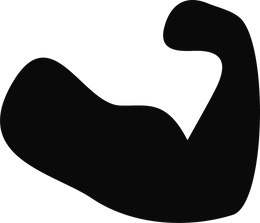 200.000+ Customers Worldwide
200.000+ Customers Worldwide Worldwide Tracked Shipping
Worldwide Tracked Shipping

